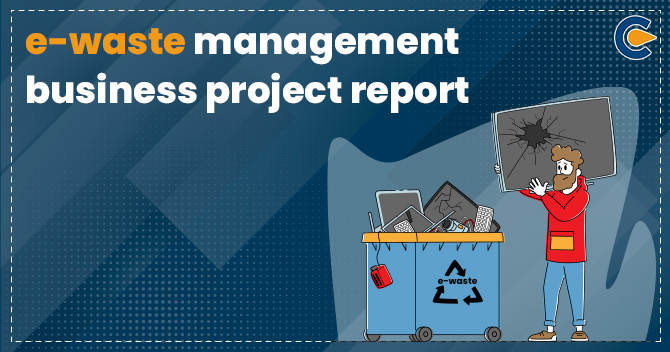In today’s world, electrical and electronic equipment such as printers, TVs, refrigerators, ACs, etc., units are one of the fastest-growing waste streams. According to the Basel Convention on e-waste, e-waste is categorised as hazardous waste due to the presence of toxic materials like lead, brominated flame & mercury are considered hazardous waste. E-waste may also contain valuable metals like copper, nickel & gold and rare materials of strategic value like palladium & indium. These valuable metals could be recycled, recovered, and used as a valuable source of secondary raw materials. It has been documented that e-wastes are shipped to emerging countries where it’s often not managed in an environmentally sound manner, thus posing a severe threat to both the environment and human health. Scroll down to check more information regarding the Basel Convention on e-waste.
The e-waste work plan accepted from COP9 to COP14 comprised activities in the following work areas:
- Programmes of activities for the environmentally sound management of e-waste in Africa, in South America, and in the Asia Pacific;
- Follow-up Partnership to PACE;
- PACE or Partnership for Action on Computing Equipment;
- Preparation of technical guidelines on transboundary movements of e-waste, in particular concerning the distinction between non-waste and waste.
Objectives of Basel Convention on E-waste
Following are the objectives of the Basel Convention on E-waste:
- Circulate information on policy tools, regional initiatives and certification schemes to manage e-waste in an environmentally sound manner, comprising success stories to turn wastes into resources, material recovery & recycling;
- Contribute towards emerging national e-waste inventories & policies for implementation of the Basel Convention;
- Systematise training activities on enforcement to boost Parties’ capacities to control & monitor e-waste transboundary shipments & implement the Basel Convention;
- Test and circulate the e-waste technical rules and the guidance or rule documents & practical manuals developed under the Basel Convention Partnership Programme (BCPP) and the ESM (Environmentally Sound Management[1]) expert working group;
- Provide collection & exchange of best practices concerning ESM of e-wastes among parties, comprising g details on new technologies and cleaner production methods to minimise or lessen and prevent the production of hazardous e-waste.
What are the main provisions of the Basel Convention on E-waste or Hazardous Waste?
The primary goal of the Basel Convention is to safeguard human health and the environment against the contrary effects that may result from the generation, transboundary movements & management of hazardous waste and other waste. To accomplish this, various interrelated objectives are to be fulfilled:
- Lessening transboundary movements of wastes to a minimum consistent with their environmentally sound & efficient management and controlling any allowed transboundary movement under the terms of the Convention;
- Heling emerging countries in the environmentally sound management of the hazardous & other wastes they generate;
- Lessening the quantity & the hazardousness of wastes generated & confirming their environmentally sound management comprising the treatment of such wastes as close as possible to their generation source.
Development of Technical Guidelines on E-Waste: Basel Convention on E-waste
The revised technical rules or guidelines on transboundary movements of electronic & electric wastes and used electronic & electrical equipment, in particular concerning the difference between waste & non-waste under the Basel Convention, was introduced on an interim basis.
Work Following COP-13
At its 13th meeting, by its decision BC-13/15, the COP set up an Expert Working Group to undertake further work on the technical guidelines adopted on an interim basis at COP-12 and the Chinese Government has provided to lead the referred work.
Under para 11 of the same decision, the COP requested the Secretariat to develop, as valid, and in consultation with the lead country, a revised questionnaire based on para 3 of decision OWEG-10/5, and send it out to parties & others. Parties & others were invited to give responses to the questionnaire to the Secretariat in 2017.
Compilation of responses to the questionnaire was set out to the OWEG at its 11th meeting. Under para 3 of the same decision, the COP invited Parties and others to give comments in various aspects concerning the development of the technical guidelines.
Work following COP-14
At its 14th meeting, by its decision, the COP or Conference of the Parties, acknowledged the need to look further into sub-para 32(a) & 32(b) of the revised technical guidelines, in particular, the concerns of Parties on the difference between non-waste & waste to advance the work towards the finalisation of the guidelines.
Under para 7 of the same decision, the COP invited each regional group to reconsider their nomination & nominate, as appropriate, through its Bureau representatives, members of the expert working group with pertinent expertise & knowledge.
Under para 8 & 9 of the same decision, the COP invited parties & others to examine and use, on a pilot basis, the revised technical guidelines and to submit, not more than 2 months before the 12th meeting of the open-ended working group through the Secretariat.
In para 13(a) of the same decision, the COP requested the Secretariat to continue to facilitate, subject to the availability of resources, training to emerging country Parties & other parties in need of help in using the technical guidelines referred to in para 3 and to arrange such activities in association with the Basel Convention regional & coordinating centres or by other suitable means.
Conclusion
Since 2002, the Basel Convention has begun to address e-waste problems which comprise, among others, environmentally sound management, prevention of unofficial traffic to developing countries & building capacity around the world to better manage e-waste. The MPPI or Mobile Phone Partnership Initiative was adopted by the 6th of the Conference of the Parties to the Basel Convention.











